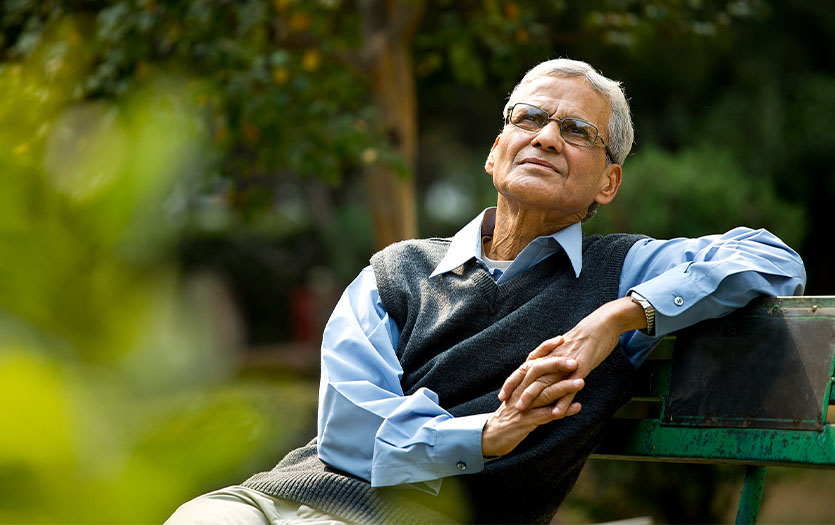
In researching people over the age of 100 for his book “The Blue Zones,” author Dan Buettner made an interesting discovery. Long-lived cultures from around the globe have three things in common: a healthy diet, an active lifestyle, and a sense of purpose.
What is a sense of purpose? It’s your inner passion, your north star, your compass. It’s the thing that gives your life meaning and direction. It’s the reason you get up in the morning.
Your sense of purpose can be anything that uplifts you — family, daily prayer, contributing to social change, expressing yourself artistically, communing with nature, working with your hands, helping others, learning something new, being great at your work …
Here are some benefits of having a strong sense of purpose:
- Greater longevity. One study found that people with a greater sense of purpose and direction had a 15 percent greater chance of living longer than those who claimed to wander through life aimlessly.
- A healthier heart. Research shows that people with a low sense of purpose are at greater risk for stroke, heart attack, and coronary artery disease.
- A more resilient brain. In a study of memory and aging, people with a higher sense of purpose were 52% less likely to develop Alzheimer’s disease, 44% less likely to have a stroke, and more than twice as likely to be dementia-free.
- Higher pain tolerance. One study showed that women who had a strong sense of purpose were better able to withstand pain and discomfort from heat and cold stimuli.
- Better relationships. Research has found that people with a greater sense of purpose tend to spend more time with their families, neighbors and colleagues, leading to more satisfying relationships in the process.
- More happiness, less depression. Having a strong sense of purpose has been linked to greater happiness and fewer symptoms of depression.
- Natural stress buffer. People with a strong sense of purpose may have a built-in stress buffer. When unexpected roadblocks occur, those who have a solid direction in their lives may be better able to cope and find alternative answers.
living purposefully: 9 ways to find your bliss.
Not sure what your purpose is? Welcome to the club. Everywhere you look, there are people drifting through life with no north star to guide them. Nothing that ignites their passion. We feel it especially after a job loss, a retirement, or the death of a loved one.
But there’s good news, too. No matter what your age, it’s never too late to find your purpose. Below are 9 ways to start exploring your options. Keep in mind that your purpose is the thing that gives your life meaning. It may or may not have anything to do with your actual career.
- Ask yourself 3 questions. What do you care about? What are your talents? What does the world need? Spend some time mulling these questions, then look for overlaps in your answers. Just because you like playing video games and you’re good at it, for instance, doesn’t mean it’s something the world needs you to do. Think about what you can do with your time and talents that will make a difference.
- Stop thinking and start doing. If you spend too much time thinking about what your purpose should be, you’ll never get past all the second guessing: Should I try this? What if I don’t like it? What if I’m no good at it? Instead, take your foot off the brake and start trying new things. You’ll know right away when something is right for you.
- Follow your heart. Your head might think you’ve found your purpose, but if your heart isn’t flooded with joy and good feelings, you’re not there yet. Your purpose is always going to be something you love. For example, what’s the one thing that makes you lose all track of time? What did you love to do as a child? What makes you feel fulfilled?
- Reject pursuits that dampen your spirit. Remember the list of daily activities you made in Week 1? Pull it out and look for patterns of activity that are consistent with your passions and talents. Now’s the time to start pursuing those activities that uplift you and avoiding those that bring you down.
- Embrace multiple passions. Too often, we get stymied because we can’t find our “one” great purpose in life. But what if you’re meant for more than one thing? Maybe you love drawing and making music and caring for animals. That’s a life filled with passions. Pursue them all, follow your bliss, and you’ll be living a purposeful life.
- Get outside your bubble. Your bubble is the small world in which you live. It’s where everything feels safe, comfortable and focused on you. But to find your true purpose, you have to step outside the bubble. Stop worrying about what might go wrong if you try something new. Get off that comfortable couch, take action, and don’t be afraid to fail or be embarrassed.
- Think beyond yourself. When you leave the bubble, you start to see the bigger picture. Instead of focusing all your attention on you, you begin to consider others. How can you make their lives better? What can you do to contribute to the larger world, or your little corner of it?
- Imagine your obituary. Think about your legacy. How will people remember you when you’re gone? What will your obituary say? If you don’t like what you’re envisioning, you still have time to change it. Ask yourself what you truly care about, and then take steps to get involved.
- Choose a problem and try to fix it. Don’t overthink this. Just pick an issue that resonates with you and start working for change. There are plenty of causes to choose from — literacy, the environment, hunger, civil rights, mental health care, women’s equality, cyber-bullying, potholes on your street… The important thing is to be engaged and feel like you’re making a difference.
Even if you’re still not sure, you probably have at least one area that interests you and “feels right.” If so, dive in. Pursue your passion — in whatever form it might take.
If you want to start drawing again, grab some paper and begin sketching. If you’re interested in a social cause, search the Internet for organizations that need your help and contact them. If you want to help others, start by looking at the people around you — your neighbors, your friends, your family — and do one thing that will make someone smile. Teach a child to swim. Brighten someone’s day with a phone call or a handwritten note.
It doesn’t matter what you do, so long as you do something. And once you’re involved in the right pursuit, your body will know it.



